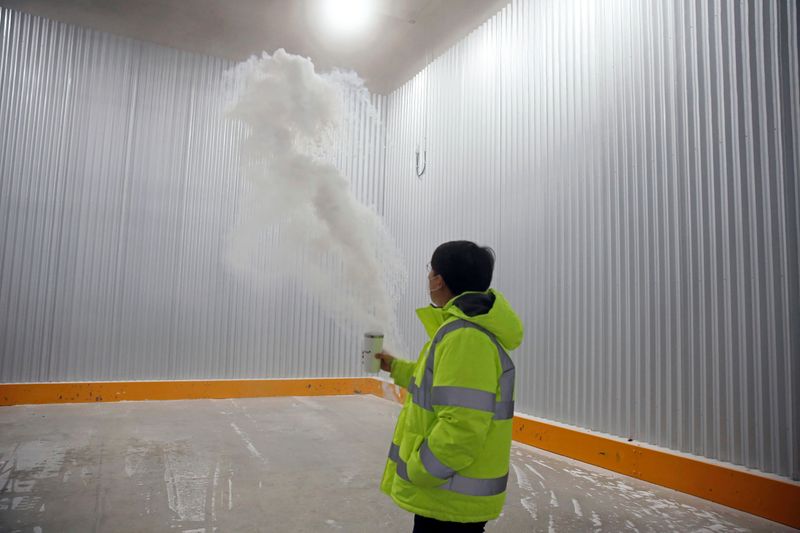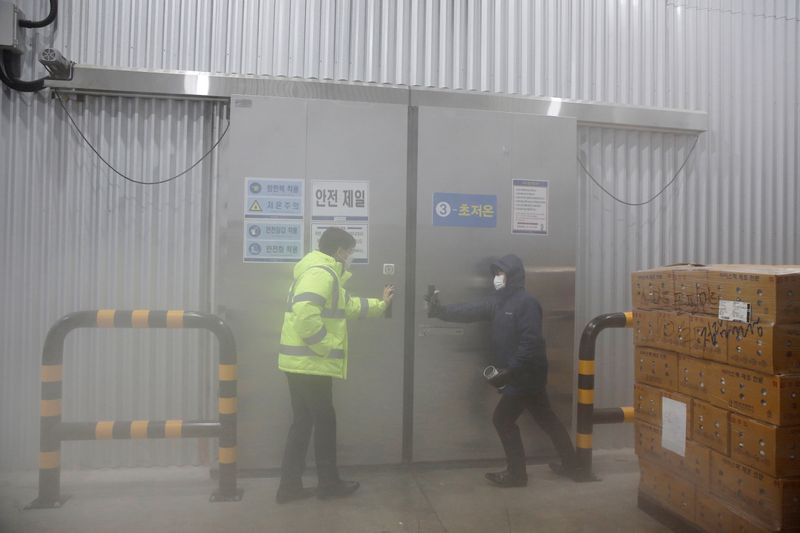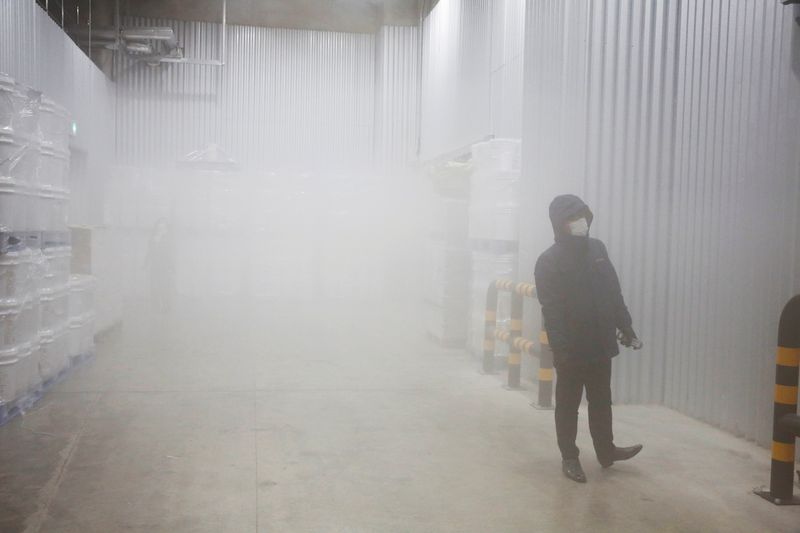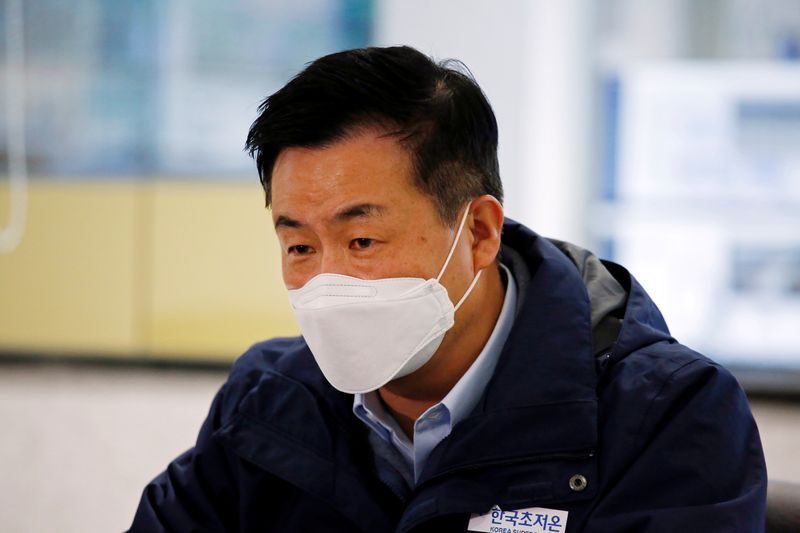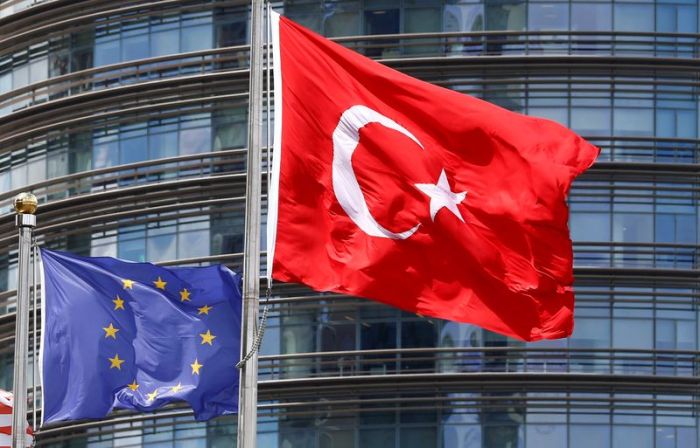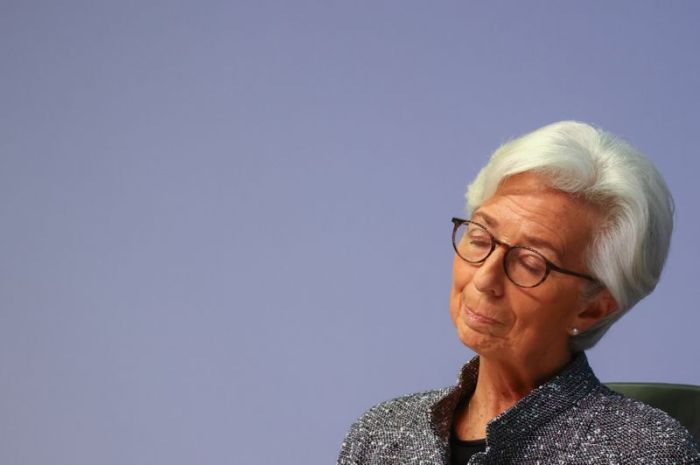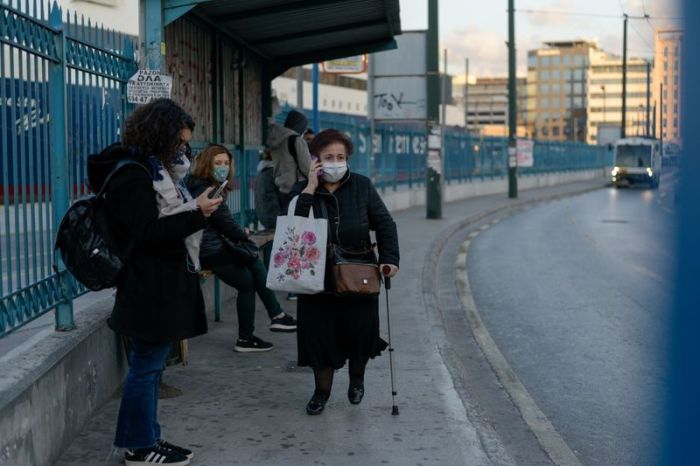PYEONGTAEK, South Korea (Reuters) – Some of the rooms in Korea Superfreeze Inc’s coldest warehouse are so frigid that a cup of warm water thrown into one will immediately turn into snow.
Located 65 km (40 miles) from Seoul and boasting temperatures frostier than an Antarctic winter, the facility would be the best, perhaps only, place in South Korea suitable for bulk storage of Pfizer’s COVID-19 vaccine, says company CEO Kim Jin-ha.
“As soon as we heard about the Pfizer vaccine, we started getting ready… other options wouldn’t work,” Kim told Reuters, adding that the warehouse’s use of liquefied natural gas (LNG) to keep temperatures cool trumped electricity.
Warehouses which use electricity would have difficulty maintaining the -70 degrees Celsius (-94 F) required by the vaccine for storage and carry the risk of the temperature rising during a power blackout, he said.
The company, which is backed by Goldman Sachs and SK Holdings Co Ltd, has been in talks with the Korea Disease Control and Prevention Agency since early November and while nothing is yet decided, expectations are high it will land a contract.
The agency has asked Korea Superfreeze to provide plans and cost estimates for storing and distributing vaccines, including how it would handle a scenario where vaccines would be shipped to 260 different locations, Kim said.
South Korea has arranged to buy 20 million doses of the vaccine developed by Pfizer and its German partner BioNTech.
The country also has deals for 20 million doses each for the vaccines developed by Moderna Inc and AstraZeneca Plc/Oxford University and for another 4 million doses from Johnson & Johnson.
In total, that would be enough to inoculate 34 million people in a country of 51.8 million and shipments are expected to begin no later than March.
Kim said, however, it was not clear to him if the agency would tap the company for vaccines other than Pfizer’s which have less onerous cold storage requirements. Moderna’s vaccine can be stored for up to six months at -20 C while AstraZeneca’s vaccine needs only normal fridge temperatures.
To accommodate Pfizer’s vaccine, Korea Superfreeze is planning a dedicated passageway and elevator so there is no interference from outside temperatures. Once it confirms it has a contract, it will begin construction which may take 2-3 months.
The warehouse also has 220 closed-circuit cameras that monitor resting cargo round the clock, Kim said.
He added that South Korea and Japan were the only countries with LNG-powered facilities which can offer storage at these temperatures and that the warehouses in Japan were much smaller and more remotely located due to earthquake risks.
All in all, the Korea Superfreeze rooms capable of storing goods at -70 C add up to 1,600 square metres (17,222 square feet). But just how much of that will be needed remains unclear as the company has not yet ascertained how big the containers carrying the vaccines will be and how much will be shipped to South Korea at a time.
Kim said, however, that some regular customers of the storage facilities might have to be inconvenienced.
“For the tuna and other goods that are being kept here at -60 degrees, we’re going to have to ask their permission, compensate them for it and clear them out of here.”

